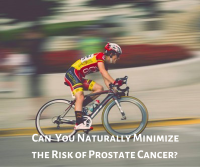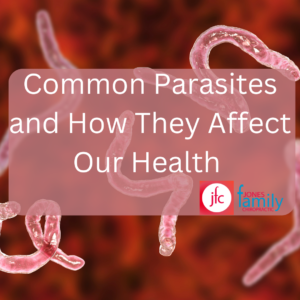Podcast: Play in new window | Download
LISTEN TO THE PODCAST EPISODE HERE
Before I get hate mail/emails, let me start by saying that I am not an MD, DO or an oncologist. However, being a Chiropractor in Elizabeth City, NC since 2001 I am all too familiar with the pain and discomfort my male patients go through when they get a prostate cancer diagnosis. My intention with this article is to provide practical tips that have been shown to be beneficial.
The prostate is a small gland the size of a walnut that sits below the bladder near the rectum. Even though prostate cancer is among the most common non-cutaneous malignancy that mostly occurs in men aged 65-years and above, it is still possible to develop early-onset prostate cancer earlier on in life and men with such diagnoses are between 35-54 years old.
As the numbers continue to gradually increase in the last few decades, researchers believe that it could be due to a variety of factors, including:
- A genetic predisposition and even though prostate cancer appears to not be inherited, a man can inherit genes that significantly increase the risk
- Environmental factors like smoking
- Eating a lot of processed meat or meals that that are dangerously high in fat
- When fast-growing tumors in young men are entirely missed during screening
What is Prostate Cancer
Prostate cancer is a slow-growing disease that occurs when abnormal cells begin to develop in the prostate and continue to multiply uncontrollably to the point of spreading into nearby or distant parts of the body. Today, there are different stages and grades of prostate cancers the most common category is grade 3, and unfortunately, men with low grade or low-risk prostate cancer live for many years without presenting any symptoms or without it spreading and becoming life-threatening. However, a high-grade prostate disease spreads much more quickly and can be lethal, which is why early diagnosis is vital in order to help a patient find the appropriate management strategy.
It is important to note that there may be no symptoms in the early stages; however, some of the common symptoms of prostate cancer in the later stages might present the following signs, and even though you may not necessarily have this type of cancer, it’s essential to seek medical attention immediately-
- Finding blood in urine or semen
- Frequent and sudden urges to urinate
- Weak urine flow including trouble starting or being unable to urinate even when the urge is strongly present
- Discomfort when urinating
- Pain in the hips, thighs and lower back
- Natural Ways to Prevent Prostate Cancer
Prostate cancer can lead to permanent quality of life-affecting issues, and while there are no known ways to prevent developing the disease, you can reduce your risks by making positive diet and exercise changes including the following natural remedies:
- Consuming anti-inflammatory foods
- Omega-3 fatty acids foods like various seafood, flaxseeds, and walnuts
- A compound called lycopene found in tomatoes, grapefruit, watermelon, and apricots has been found to reduce the risk of prostate, lung, and stomach cancer
- Attend regular screening
Things to avoid include:
- Oils that contain substantial amounts of omega-6 fatty acids
- Sugars and carbohydrates
- Grilled or fried meats




